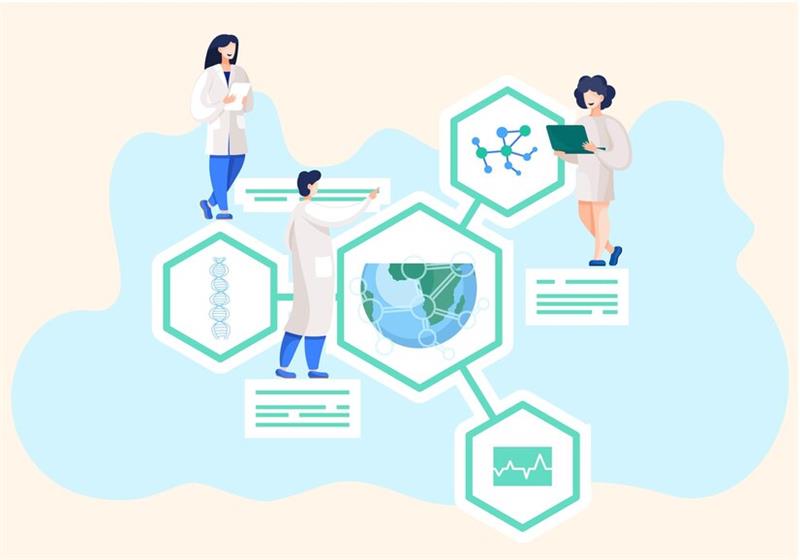The fusion of Artificial Intelligence (AI) with medical writing signifies a groundbreaking shift in the domain of scientific literature, marking the dawn of a new era in the dissemination of medical knowledge. This revolutionary blend not only opens a plethora of possibilities for enhancing the precision and accessibility of medical information but also introduces a complex web of ethical and practical considerations. At the heart of this transformation is a pivotal question: What is the future role of human writers in an age that is increasingly being dominated by AI? As we step into this uncharted territory, it becomes essential to dissect the intricacies of this integration, examining the implications for authorship, the ethical landscape surrounding AI tools like ChatGPT, and the evolving criteria for authorship in scientific research. It is imperative to delve into the multifaceted relationship between human intellect and artificial capabilities, seeking to understand how they can coalesce to foster a richer, more robust medical literature landscape. This also marks a vital phase for medical writing services and scientific communications.
The Dawn of AI in Medical Writing
AI’s foray into medical writing is not merely about automating mundane tasks or processing data at superhuman speeds. It’s about augmenting the capabilities of human writers to meet the increasing demands for precise, reliable, and timely medical information. With technologies such as natural language processing (NLP) and machine learning, AI can analyze vast datasets, stay updated with the latest research findings, and even draft content that adheres to the stringent requirements of medical documentation and publication, albeit with human intervention at each step to ensure the robustness of the product.
The Human Touch in Medicine and Writing
Despite the efficiency and capabilities of AI, the essence of medical writing also involves empathy, understanding, and the ability to connect with the reader on a human level, especially, in the era of patient-centricity. These inherently human traits cannot be fully replicated by AI, at its current stage of development. The nuanced understanding of patient experiences, ethical considerations, and the socio-cultural dimensions of health and illness remain domains where human writers excel. Thus, while AI can enhance the accuracy and efficiency of data presentation, human writers bring depth, perspective, and empathy to medical writing, making it more relatable and comprehensible to diverse audiences.
Click Here:- Revolutionizing Medical Writing with AI and Automation
Collaboration, Not Replacement
The future of medical writing is not about choosing between AI and human writers but understanding how both can collaborate to achieve outcomes that were previously unimaginable. AI can handle the heavy lifting of data analysis, literature reviews, and even drafting basic versions of documents. In contrast, human writers can focus on adding value through critical thinking, creative presentation of information, and ethical judgment. This synergy can lead to higher-quality medical documents produced at a faster pace, facilitating better healthcare outcomes through improved knowledge dissemination.
Ethical and Practical Considerations
The integration of Artificial Intelligence (AI) into medical writing brings to the forefront a myriad of ethical and practical considerations that must be navigated with care. Ethically, the use of AI tools like ChatGPT in medical writing raises significant questions regarding transparency, accountability, and the integrity of the medical literature. A primary concern is ensuring that the use of AI does not compromise the accuracy and reliability of medical information. There is a pressing need for clear guidelines on how AI contributions are disclosed in medical documents, ensuring readers can distinguish between human-generated and AI-assisted content. This transparency is crucial for maintaining trust in the medical literature.
Accountability becomes complex when AI tools are involved in the writing process. Errors or inaccuracies in AI-generated content could have serious implications for patient care and medical research. Determining responsibility for these errors—whether it lies with the developers of the AI, the medical writers using the tool, or the publishers—requires careful consideration and clear policies. Importantly, AI cannot be given the status of an author because AI cannot be held responsible for any wrongdoings in the manuscript, nor can it be held accountable for the data produced in a manuscript.
That said, the change in the medical writing and scientific communication landscape with the advent of AI is inevitable. From a practical standpoint, the adoption of AI in medical writing necessitates the development of new skills and competencies among writers. Medical writers must become proficient not only in their subject matter but also in the use of AI tools, including understanding their capabilities, limitations, and best practices for their use. Additionally, there is the challenge of ensuring equitable access to advanced AI technologies, which could exacerbate disparities between well-resourced and under-resourced writers and institutions.
Training and Adaptation
Adapting to the brave new world of AI-assisted medical writing requires comprehensive training and a willingness to embrace new modes of working. For current medical writers, this might involve formal training programs, workshops, and continuous learning opportunities to stay abreast of the latest AI technologies and their applications in medical writing. Understanding the ethical guidelines for using AI in research and publication, as well as mastering the technical skills to use AI tools effectively, will be crucial.
Educational institutions and professional bodies in the field of medical writing and communication play a pivotal role in preparing the next generation of medical writers. This preparation involves integrating AI literacy into the curriculum, focusing not only on how to use AI tools but also on critical thinking about the implications of AI in medical research and communication. Training should emphasize the collaborative nature of AI in the writing process, teaching writers how to leverage AI for data analysis, literature review, and initial drafting while retaining the critical role of the human writer in interpreting, refining, and ensuring the accuracy and relevance of the final content.
Moreover, the adaptation process extends beyond individual writers to include publishers, research institutions, and regulatory bodies. These stakeholders must work together to develop standards, guidelines, and best practices for the use of AI in medical writing. This collaborative effort is essential to harnessing the potential of AI while addressing the ethical, practical, and professional challenges it presents.
Conclusion: A Symbiotic Future
The fear that writers will become extinct due to advancements in AI is unfounded. Instead of extinction, we are witnessing a shift in the role of writers in medical writing. The future promises a symbiotic relationship where AI enhances the capabilities of human writers, leading to a new era of medical documentation and communication that is more accurate, accessible, and comprehensive. In this new world, the essence of medical writing remains uniquely human, with AI serving as a powerful tool to complement our abilities, not replace them.
By embracing this collaborative future, we can ensure that medical writing continues to benefit from both worlds: the unparalleled analytical capabilities of AI and the irreplaceable human qualities of empathy, creativity, and ethical judgment. The brave new world of medical writing is not a battlefield of human versus machine, but a collaborative space where the fusion of human intellect and artificial intelligence opens unprecedented possibilities for advancing healthcare knowledge and practice.






































